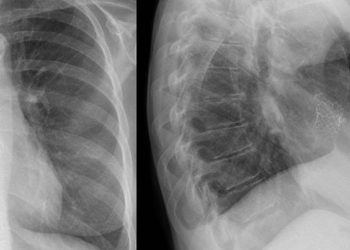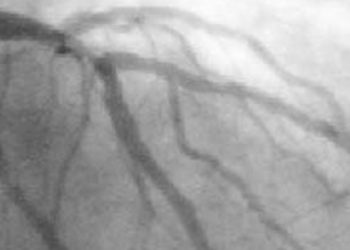30-Day mortality decreased in UK pediatric cardiac surgery from 2000-2010
1. There has been almost a 50% decrease in the 30-day mortality of United Kingdom (UK) pediatric cardiac surgery patients over a 10 year period in all but the highest risk surgeries.
2. The total amount of pediatric cardiac surgeries performed in the UK has almost doubled, mainly in the more high risk surgery groups.
Evidence Rating Level: 2 (Good)
Study Rundown: Mortality rates in pediatric cardiac surgery were high in the 1990’s in the UK, prompting better national tracking of these surgeries and great interest in reducing mortality. Since the late 90’s, the UK Congenital Heart Audit has tracked cardiac surgeries nationally in the UK. This study, evaluating outcomes from 2000-2010, found an almost 50% reduction in 30-day mortality in the three lowest risk groups. The highest risk group was the only strata not to show any change. In addition, there was a near doubling in the total amount of surgeries in 2010 compared to 2000 with greatest increases coming from the top three risk groups. There was also an increase in the complexity of cases overall, including an increase in the number of surgeries on infants and on low weight babies. Six specific procedures showed decreased mortality: arterial switch operation with ventricular septal defect (VSD) repair, ligation of patent ductus arteriosus (PDA), the ‘no specific procedure’ group, the Fontan-type operation, tetralogy of Fallot repair, and isolated VSD repair.
The findings of decreased 30-day morality rates in the UK corroborate results of other studies and follow a general downward trend in pediatric surgery mortality. There is also published validation for the completeness for submissions to the National Institute of Cardiac Outcomes Research (NICOR), further giving credence to the findings. Of note is the lack of morbidity and discharge mortality data in this study, which would have provided better perspective on patient outcomes. Nonetheless, the study suggests that the national review of pediatric cardiac surgery in the UK was effective in decreasing raw mortality and future evaluations should also focus on more thorough measures of patient outcomes.
Click to read the study in Open Heart
Relevant Reading: Comparison of Pediatric Cardiac Surgical Mortality Rates From National Administrative Data to Contemporary Clinical Standards
In-Depth [retrospective cohort]: 36,641 cases (97.4% of total cases reported) were included in this study from 2000 to 2010 from the UK Congenital Heart Audit, and the main endpoint considered was 30-day mortality from the time of initial surgery. Case complexity was assessed using the following factors: high risk primary congenital heart disease types, univentricular heart, young age at operation, low weight at operation, multivariate risk using the UK-based partial risk adjustment in surgery (PRAiS), and specific procedure type. There was an increase in the number of cases (2283 in 2000 to 3939 in 2010; p<0.01) and a decrease in mortality overall from 4.3% (CI95 3.5 to 5.1%) in 2000 to 2.6% (CI95 2.2 to 3.0%) in 2010. Specifically, in the lowest risk group (<1% predicted mortality), mortality fell from 1.4% (CI95 0.6 to 2.1%) to 0.5% (CI95 0.2 to 0.7%), 3.2% (CI95 1.9 to 4.5%) to 1.6% (CI95 1.1 to 2.2%) in the second risk group (1 to 3% predicted mortality), and 11.1% (CI95 8.1 to 14.3%) to 4.5% (CI95 3.6 to 6.0%) in the third risk group (3 to 10% predicted mortality). There was no change in the highest risk group (>10% predicted mortality) from 10.3% (CI95 9.5 to 15.2%) to 12.7% (CI95 9.5 to 15.8%). There was an increase in the complexity of cases, with the number of cases involving low weight babies increasing from 8.1 (CI95 6.9 to 9.3%) to 10.4% (CI95 9.6 to 11.1%) and an increase in the proportion of those with higher risk diagnoses from 6.7% (CI95 5.6 to 7.7%) to 9.5% (CI95 8.7 to 10.2%).
Image: PD
©2015 2 Minute Medicine, Inc. All rights reserved. No works may be reproduced without expressed written consent from 2 Minute Medicine, Inc. Inquire about licensing here. No article should be construed as medical advice and is not intended as such by the authors or by 2 Minute Medicine, Inc.









